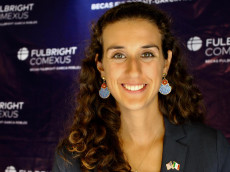On June 18, President Museveni issued a new 42-day lockdown to combat a recent surge in COVID-19 cases in Uganda. The restrictions severely limit movement on both intra and inter-district travel. Boda bodas, the motorcycles that serve as the country’s taxi service, are no longer allowed to operate. Even private vehicles are banned. As a consequence, the only way for the majority of the population to move around is by bike (essentially limited to men) or on foot.
Limited transportation has the effect of preventing people from working and, in turn, making money. Consy, one of the women in Victoria’s Gulu-based group Women in Action for Women (WAW) told me that she lost all her money during the first COVID lockdown because she was unable to sell her goods in the marketplace. Now she is forced to stay home yet again with no livelihood prospects.
Unfortunately, this is a situation faced by many Ugandans. At the moment, only pharmacies, supermarkets and other stores selling essential goods are allowed to open. Police have been given orders to arrest street vendors and confiscate their goods. There are currently no government plans in place to provide emergency funds to the jobless. However, earlier this month Uganda successfully appealed to the IMF for a billion dollar loan to aid in COVID recovery. But it is unclear exactly how the government plans on spending the money; it has historically lacked transparency around public debt recording, monitoring, and reporting.
In the face of government ineptitude, Consy is more worried about starvation than contracting COVID-19.
In the United States, Black and Hispanic individuals were more likely than their white counterparts to have lost their jobs, because they were working in hard-hit industries like hospitality and construction. As a result, millions of Black and Hispanic households faced difficulty making rent or mortgage payments during the pandemic, and from November 11 to November 23, 2020, adults from 20 percent of Black households and 18 percent of Hispanic households, compared to 9 percent of white households, said their household didn’t have enough food to eat in the prior week.
Unlike the Ugandan government, the US government provided expanded unemployment benefits to workers who lost their jobs as a consequence of the pandemic. On March 25, 2020 — just two months after the first COVID case was recorded in the US — the federal government passed the Coronavirus Aid, Relief, and Economic Security (CARES) Act, which provided direct economic assistance to American workers, families, and businesses.
But was it successful? In its analysis of the CARES Act, the Kennan Institute of Private Enterprise concluded that it did not provide direct assistance to those most affected. Even when the stimulus checks did marginally help, they only constituted a short-term fix rather than a long-term solution to poverty.
In both Uganda and the United States, the absence of safety nets for both countries’ poorest means that they will continue to be vulnerable to epidemics as the rest of the world moves on.
Posted By Anna Braverman
Posted Jun 28th, 2021

